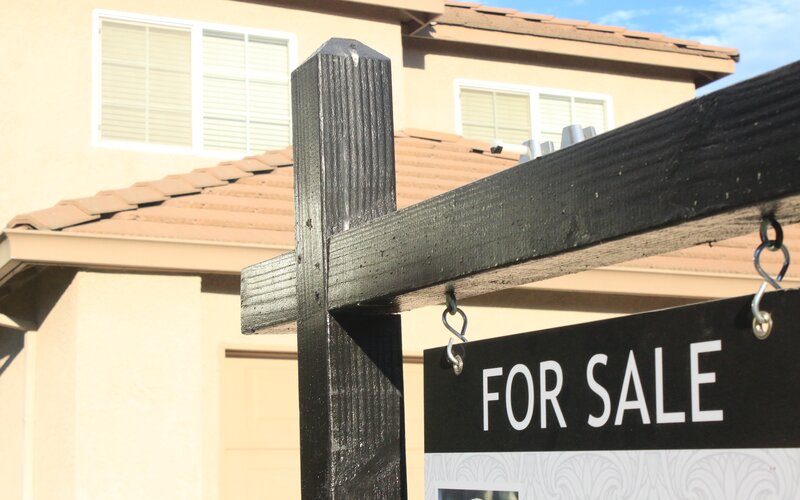Aussies love storing cash in offset accounts, and it's not just me saying that. A record $300 billion was kept in offset accounts across the nation as of December 2024, Australian Prudential Regulation Authority (APRA) data shows. But could a homeowner's spare cash be better spent paying down a home loan's balance, rather than being held in an offset account?
There are arguments for and against paying off a home loan when you have the means to, with the major ones being:
-
For: Wiping out a major debt could provide some borrowers with valuable peace of mind
-
Against: Having an open loan facility and using an offset account reduces interest payable while providing access to funds and can see some property investors retaining tax benefits
All the money stored in an offset account is 'offset' against the principal of a person's home loan. Meaning, they don't pay interest on that portion of the loan.
For example
If a person has a $500,000 mortgage and $100,000 in their offset account, they'll only pay interest on $400,000 ($500,000 - $100,000).
That could save them more than $276,000 in interest over the course of a 30-year home loan, assuming a constant 5.5% per annum interest rate, according to Savings.com.au's Offset Calculator.
Still, many property owners may wonder if they'd be better off using the money in their offset account to pay down the balance of their home loan. Perhaps particularly if their offset account's balance would cover most, if not all, of their debt.
So, would a cashed-up borrower be better off making extra repayments on their home loan? And what would happen if the money in their offset account surpassed the balance of their home loan? Let's dive in.
Offset account vs making extra repayments
Choosing between making extra repayments on your mortgage or putting cash into your offset account is an entirely personal decision, according to Icon Mortgages managing director Jasjeet Makkar.
"This is a subjective topic in our industry," Mr Makkar told Savings.com.au. "It's hard to have a blanket solution as so much will depend on each individual and their financial situation.
"The biggest benefit of an offset account is that it allows you to save on the interest expense of your home loan repayments. You still have access to your cash while still saving on your interest expense."
Why keep spare cash in an offset account?
Ease of access to your money is likely the top reason a borrower might choose to add to their offset account over making extra home loan repayments. Homeowners can use their offset account in the same way they might use a transaction or savings account. It's always there to be added to or withdrawn from at the touch of a button or the tap of a card, generally without fees or limitations.
If they were to pay off their home loan however, they might have plenty of equity, but may not have access to all that much cash. Bricks and mortar are not often easy to liquidate, if needed.
| Lender | Home Loan | Interest Rate | Comparison Rate* | Monthly Repayment | Repayment type | Rate Type | Offset | Redraw | Ongoing Fees | Upfront Fees | Max LVR | Lump Sum Repayment | Additional Repayments | Split Loan Option | Tags | Row Tags | Features | Link | Compare | Promoted Product | Disclosure |
|---|---|---|---|---|---|---|---|---|---|---|---|---|---|---|---|---|---|---|---|---|---|
5.89% p.a. | 5.93% p.a. | $2,962 | Principal & Interest | Variable | $0 | $530 | 90% |
| Promoted | Disclosure | |||||||||||
5.84% p.a. | 6.08% p.a. | $2,947 | Principal & Interest | Variable | $250 | $250 | 60% |
| Promoted | Disclosure | |||||||||||
5.89% p.a. | 6.14% p.a. | $2,962 | Principal & Interest | Variable | $248 | $350 | 60% |
| Disclosure |
A word of warning on offset accounts
It's worth noting that banks and lenders generally charge fees and a higher interest rate to those holding offset accounts and many of the most competitive home loans on the market don't offer them, even as an optional extra.
"Offset accounts aren't free," Mr Makkar said. "Almost all lenders charge an annual or a monthly fee for having an offset account product in your home loan."
He also refutes a common misconception many borrowers have when it comes to offset accounts.
"When we use the term 'save on interest expense', it doesn't affect a person's monthly repayments - clients call me back about this all the time! Your minimum repayment doesn't actually come down, no matter how much you have in your offset account."
Why use excess funds to make extra repayments (and access them using a redraw)?
Redraw facilities allow borrowers access to extra repayments they've made over the course of their loan.
Though, they're often not as convenient as an offset account and borrowers may need to jump through a few hoops to get hands on the cash within them.
For instance, a person can't simply whip out a debit card attached to their redraw account - they normally have to go through the process of transferring additional repayments out of their home loan.
While Mr Makkar notes most lenders have smoothed out the process of redrawing extra repayments, certain lenders might still demand borrowers redraw a minimum amount each time or limit how many times a person can redraw their additional repayments within a set period.
And, of course, if their extra repayments outweigh their principal balance, their loan will likely be paid off. In which case they'll lose access to both the cash and that debt facility - a key consideration for anyone contemplating paying off their home loan entirely.
On the other hand, many Aussies resting their head on their pillow tonight might end up dreaming of being mortgage-free. Owing nothing to the bank is a noble goal and might provide valuable peace of mind.
"I wouldn't say there are any drawbacks in making additional repayments to your home loan, but then again, it's subjective to your own financial position," Mr Makkar said.
"If someone's closing in on retirement, or they've got plans to reduce their workload in the coming years, they would probably rather have no monthly repayments. Whereas someone younger who has other financial goals may be benefited by keeping their loan open but using tools like a redraw or offset account."
Offsetting to keep your liquidity options open
But why wouldn't a homeowner use their cash to pay off their home loan; isn't living mortgage-free part of the 'Australian dream'? Well, not always.
The main argument against paying off a home loan is that doing so will reduce the amount of cash a person can access in a hurry.
Home loans generally offer the lowest interest rate of any type of financial product - meaning they're often the cheapest form of debt a person can apply for. And they can typically provide a person with the most cash, as the value of a house is generally more than that of other assets used as security.
Typically, a secured car loan will allow a borrower access to $100,000 or less, while unsecured car or personal loans are often capped at $50,000. A home loan, on the other hand, can allow a person to borrow hundreds of thousands of dollars (or even millions) with a comparatively low interest rate.
So, if a homeowner were to renovate their kitchen or buy a new set of wheels, they might be better off using the money kept in their offset account, essentially increasing what they owe through their home loan, rather than borrowing through another facility.
Though, due to the longer lifespan of a home loan, a person in such a scenario might end up paying more in interest over the longer term than if they were to sign on to a different finance product.
Again, if you're not sure what would be the best decision for your individual financial situation, it's probably worth reaching out for independent expert advice.
Case study: Liz, her Sydney apartment, and her offset account

Image by Francesca Tosolini on Unsplash.
Elizabeth Michelle, who also goes by Liz, is a mum, an early childhood teacher, and the brains behind Teaching Brave, a blog on parenting, early childhood education, and money matters.
Liz is also a homeowner, having purchased her two-bedroom apartment in Sydney's Hills area in 2019.
She refinanced her home loan from NAB to a split home loan (50% fixed and 50% variable) with St George two years ago, making the most of a cashback offer in the process. She has $500,000 left on the principal balance and recently reached the end of her fixed rate period.
With all that considered, Liz recently wondered whether the $24,000 she kept in her offset account would be better used to pay down the principal of her home loan. However, she ultimately found having handy access to her emergency fund was more worthwhile.
"I do want to get rid of my mortgage as soon as possible, especially now that interest rates have risen," Liz told Savings.com.au.
"I enquired with the bank as to whether it's more beneficial to keep extra cash in my offset or just use it to pay down the loan, to which they responded it would be the same effect.
"An emergency fund has become more of a priority over the past few years, more so than ever before, and I wanted to build it up as much as I can, as well as have easy access to it.
"Keeping it in my offset also reduces the interest payable on my mortgage which is like a win-win."
But adding to her offset account isn't the only way in which Liz is working to reduce the life of her home loan. She's also making the most of a 'mortgage hack' that's become increasingly prominent in recent times.
"One thing I have also just done is switch to fortnightly mortgage payments rather than monthly, which will actually shave five years off my home loan!
"I plan on shaving down that even more by continually adding to my offset and making extra mortgage repayments on a regular basis."
In the meantime, Liz's apartment was already worth $100,000 more than she paid four years prior to our conversation in 2023. If need be, Liz can still reach back into her home loan to take advantage of that equity - a benefit she couldn't otherwise realise if she were to pay off her home loan entirely.
Tax benefits of retaining a home loan
If you're a property investor, you've probably come across negative gearing. It's a tax benefit that can see an investor reducing their taxable income if the costs born from owning their investment property outweigh the rental income they realise.
One of those costs is interest on a home loan. Thus, if a property investor were to pay off their home loan, they wouldn't be able to deduct the cost of interest at tax time. Of course, that also applies if their offset account carries as much cash as they owe on their investment property.
"In some circumstances, it can be [beneficial to keep a home loan open] because you might want to maximise the interest expense of your investments, because that's what gets you the tax deductions," Mr Makkar said.
What happens if you offset more than you've borrowed?
If your offset account is heftier than your home loan, your repayments won't stop and you'll still have to pay your regular repayments. That is, unless you're making interest only repayments.
Though, as the entirety (or the vast majority) of your repayments will likely go towards the principal balance of your loan, you might be on track to pay off your home loan faster than expected.
Savings account vs offset accounts
It's also worth mentioning that if a person is keeping more money in their offset account than they owe on their home loan, they might be missing out on earning a return on the surplus. Unlike savings accounts, excess money stored in an offset account won't earn interest.
As an example, let's assume a person has a $340,000 mortgage on a three-bedroom, two-bathroom property in sunny Cairns. They also happen to have $350,000 in cash.
Now, they might put all of those funds into an offset account. That would mean they wouldn't pay any interest on their home loan and all of their repayments would go to their principal balance.
However, the extra $10,000 of surplus won't be providing any benefit, except maybe to boost their ego.
For that reason, this person might be better off moving the extra $10,000 into a savings account where it will return interest.
Though, it's worth mentioning that interest earned through a savings account is considered taxable income, unlike interest saved by using an offset account.
Using funds in an offset account to pay off a home loan: Pros and cons
There are many things a homeowner should think about before paying off their home loan or deciding to keep all their spare cash in an offset account. Here are a few key considerations:
Storing money in an offset account
Pros
-
Reduces interest portion of repayments, potentially down to nothing
-
Provides easy access to cash savings
-
Any money stored in an offset account remains yours to use as you please
Cons
-
Offset accounts generally demand fees and home loans that offer offset accounts often come with higher interest rates
-
There is an opportunity cost if a borrower keeps more in their offset account than they owe on their home loan, as the excess won't provide any form of return
-
If your bank collapses, only $250,000 of a person's money kept in an offset account is guaranteed under the Financial Claims Scheme (more on this below)
-
If you're the type that struggles to not spend your savings, keeping excess cash within easy reach might be a temptation you wish to avoid
Paying off a home loan in its entirety
Pros
-
By paying off a mortgage, a person can own their home entirely, which could provide peace of mind and surety
-
No home loan? That means no more home loan repayments
-
If a person's only debt is their home loan, paying it off will mean their expenses are no longer directly influenced by the cash rate
Cons
-
By paying off a home loan entirely, a person will lose access to a lower-interest debt facility, potentially impacting their personal liquidity. To get access to their equity later, they might need to refinance or take out a reverse mortgage
-
Property investors will also lose their potential ability to deduct interest costs from their taxable income
-
After paying back their loan, a borrower will no longer have access to the money used to pay it down. That could be particularly impactful if a person sinks the majority of their savings into the facility
-
Once the loan on a property is closed, an owner will need to go through the process of refinancing it to get access to the equity stored within it once more
Can a bank force you to repay your home loan?
Generally, a bank or lender won't force you to repay your home loan if the balance of your offset account equals the outstanding loan balance, even though it means they no longer receive interest.
The money in a person's offset account is theirs, just like how the money in a person's savings account is theirs. Thus, if you don't want to use the cash from an offset account to repay a home loan, your lender can't make you do so.
Are there risks to using an offset account or redraw facility?
So far we've covered the what, when, and why of keeping spare funds in an offset account or making extra home loan repayments. However, to make a fully informed decision, a mortgage borrower needs to know the risks of each option. So, are they at risk of losing (or losing access to) their hard-earned money?
Are mortgage borrowers at risk of losing funds kept in their offset account?
You know how your grandpa refused to put his money in the bank, instead hiding it mattress covers and shoe boxes around his house? He was likely worried that banks can collapse, which could once leave depositors high and dry.
Fortunately, modern day depositors are protected from losing their money in the event their bank goes bust - to a point. The Australian Government's Financial Claims Scheme (FCS) guarantees up to $250,000 of deposits per consumer, per institution.
If you're an individual borrower keeping more than $250,000 in an offset account - or spread out across various accounts within a single institution - and your bank goes bust, you might not get the excess back.
If you have less than $250,000 stashed away with the one bank, then no worries! You'll receive all your money back in the event of a bank collapse. However, if you have heftier coffers, you might choose to make a lump sum home loan repayment to reduce your offset account's balance to $250,000 or less per borrower. Or you might continue on confident in your bank's financial prowess - the choice is up to you.
Are mortgage borrowers at risk of losing access to their redraw facility?
The good news: If your bank collapses, it likely won't take your redraw facility with it. The bad news: It is possible (albeit unlikely) that you could lose access to your extra repayments.
There are two situations in which this might occur: Your bank collapses and your mortgage is sold or your lender changes its terms and conditions.
Let's start with the first possibility. In the event your bank goes bust, you aren't off the mortgage hook. Your loan will likely be sold to another lender, meaning you'll continue making repayments, just to a new institution. That's all well and good, except any funds kept in your redraw facility at the time might be absorbed into your loan, potentially making them inaccessible to you without refinancing.
Now for the second possibility. Lenders offer redraw facilities as extra features on home loans. Despite being common, they're not a given - lenders don't have to allow borrowers access to extra repayments. Thus, there could feasibly be a situation in which your lender changes its policy regarding redraws, making borrowers jump through extra hoops or limiting their usage.
You could even wake up one morning to realise your lender has reduced the balance of your redraw facility. After all, the funds within a redraw facility are extra repayments that you voluntarily made to your lender - it's not a bank account. That's what happened to customers of ME Bank in 2020, when it made the call to reduce the amount borrowers could redraw if they were deemed at risk of falling behind on their repayments. The change caused uproar and the bank ultimately reversed its decision, but it likely left many nervous to rely entirely on redraw facilities.
Savings.com.au's two cents
Making extra repayments and keeping excess cash in an offset account are both ways to reduce the interest portion of a person's home loan repayments and the life of their loan. They each offer different benefits and drawbacks.
Those who use their extra money to pay back more of their home loan will owe less to their bank or lender. Meanwhile, a person keeping their savings in an offset account will have easy access to the money if they need it.
If you're unsure about whether using an offset account or making extra repayments is the best course of action for your personal financial situation, you might find value in reaching out to an independent professional for advice.
First published on October 2023
Image by Ann Wallace on Unsplash.

Ready, Set, Buy!
Learn everything you need to know about buying property – from choosing the right property and home loan, to the purchasing process, tips to save money and more!
With bonus Q&A sheet and Crossword!






 Denise Raward
Denise Raward



 Brooke Cooper
Brooke Cooper

